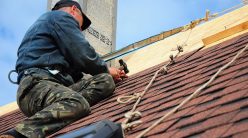The small gaps or cracks in your house walls near windows and doors might let air, warm or cool, escape. You can seal the air leaks with proper insulation, and that could save a lot of energy, reducing your bills.
Let’s get to the roots. Most often, our energy bills are spent majorly on heating and cooling. As mentioned earlier, a not-so-well-insulated home will give way to increased energy consumption and bills. Therefore, it is best to provide home insulation to manage power bills and create a more energy-efficient home.
What is Insulation?
Insulation is a barrier that inhibits the transfer of heat, managing heat loss and heat gain. So during winter, it stops the cool air from coming inside and resists heat from outdoors during summers. It traps the heat or cool in different climates, thereby reducing the energy consumption of your home’s heating and cooling systems.
So how can insulation help save energy?
The math of insulation, energy savings, and reduced bills is simple. As a matter of fact, heating and cooling systems in our homes are the top contributors that increase our energy consumption. Around 50% – 70% of total energy use is often consumed chiefly because of air conditioning and heating systems.
We might face more energy bills when the insulation is not upgraded, or when homes are improperly insulated. To make this easier, let’s say that having an improperly insulated home is equal to keeping a window open while having a heating or cooling system on. Therefore, it can cause a lot of energy loss.
When you install insulation, you can seal air leaks and have a better energy-efficient home, reducing your heating and cooling expenses. Insulation is also better for global climate change and reduces carbon footprint.
Attention: Signs your house needs new insulation
Most of our houses are under-insulated and need our immediate attention and upgraded insulation. So some insulation work will help a lot. Contacting professional insulation services to examine the home and get it insulated is one way. But here are some signs that suggest you upgrade the insulation immediately.
- Does the temperature vary largely in different rooms at the same time? Maybe one part of your house needs insulation.
- A no-brainer – are your energy bills extremely high while using heating or cooling systems?
- Are icicles hanging from your rooftop in the winter? Maybe insulation in your attic needs an upgrade.
Is insulation cost-effective?
Insulation is one of the most effective methods to reduce your energy bills. In addition, it can also reduce condensation, reducing unwanted air pollutants in and around your home.
Insulation cost vs Savings
A well-insulated home pays off. Insulation cost is more of an investment than an expense, which reduces your regular expenses. For example, adding insulation in attics, crawl spaces, and others can save almost 15% on heating and cooling costs.
It could help you save around $200 in energy savings annually. When you get insulation services to upgrade home insulation, you are planning and saving more in the long run. Regarding ROI and market values, upgraded insulation also gets you a higher value. So, either way, home insulation is a win-win situation.





